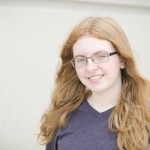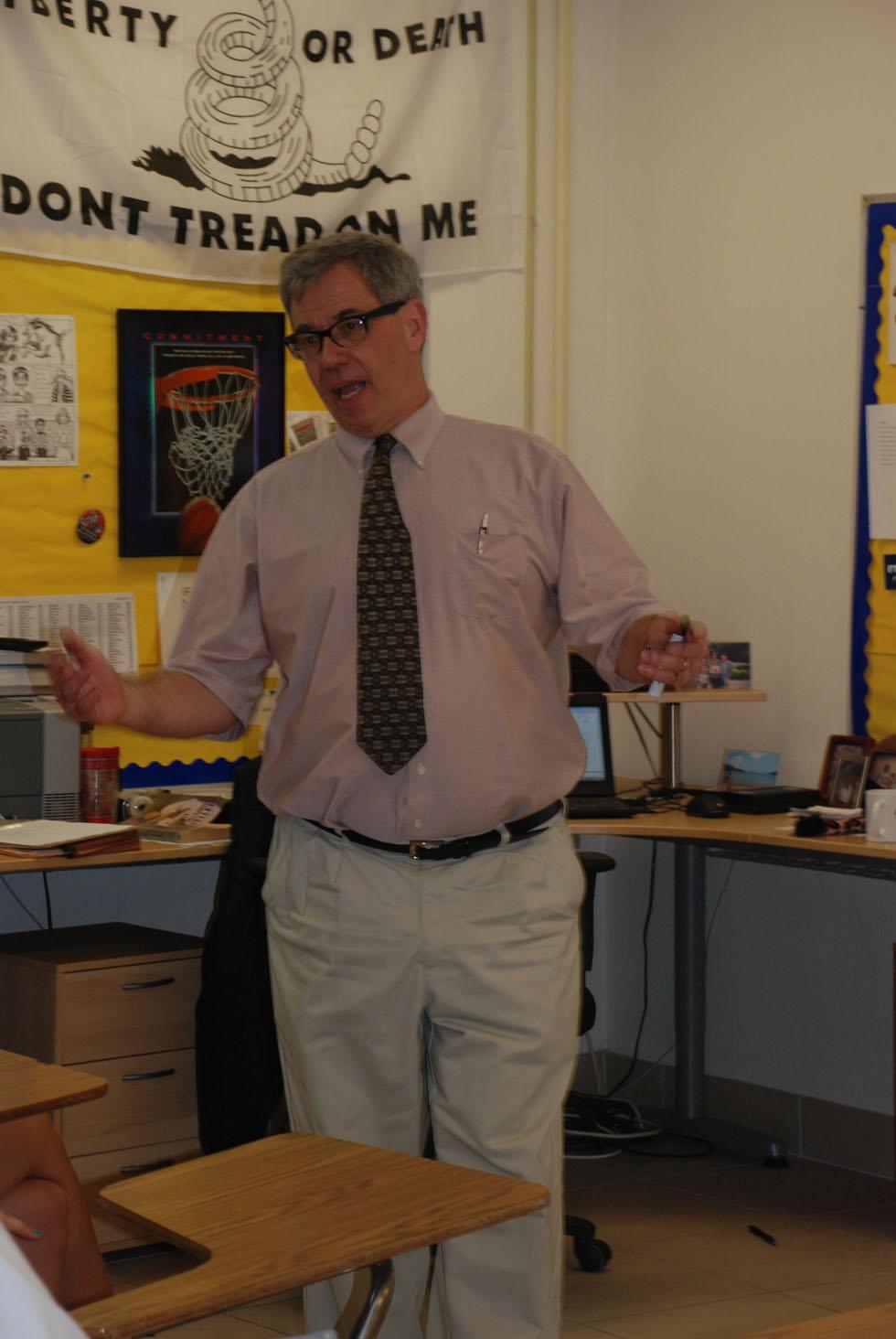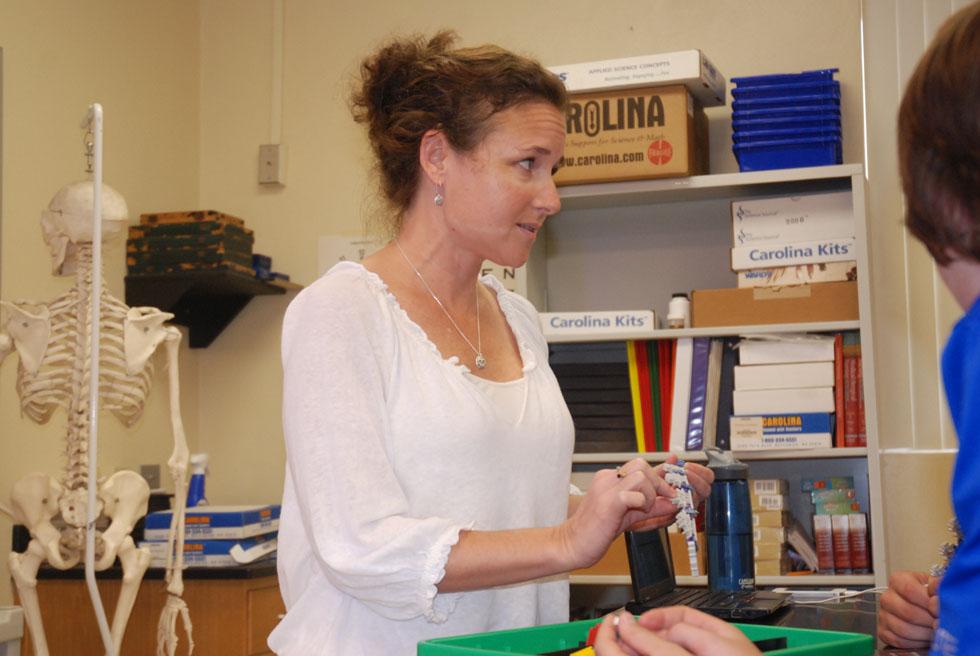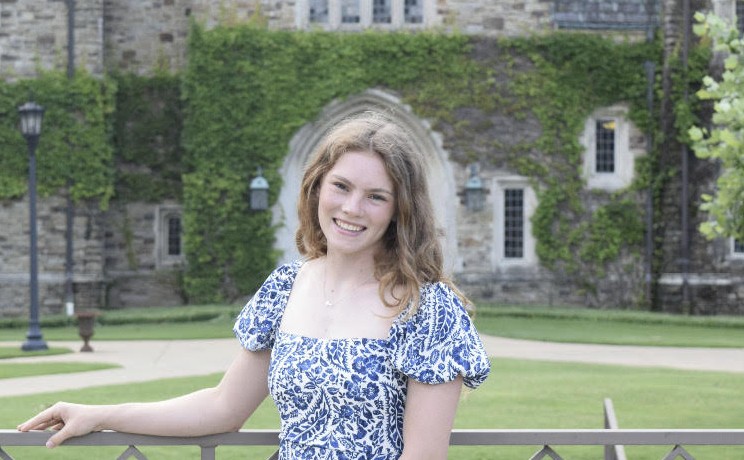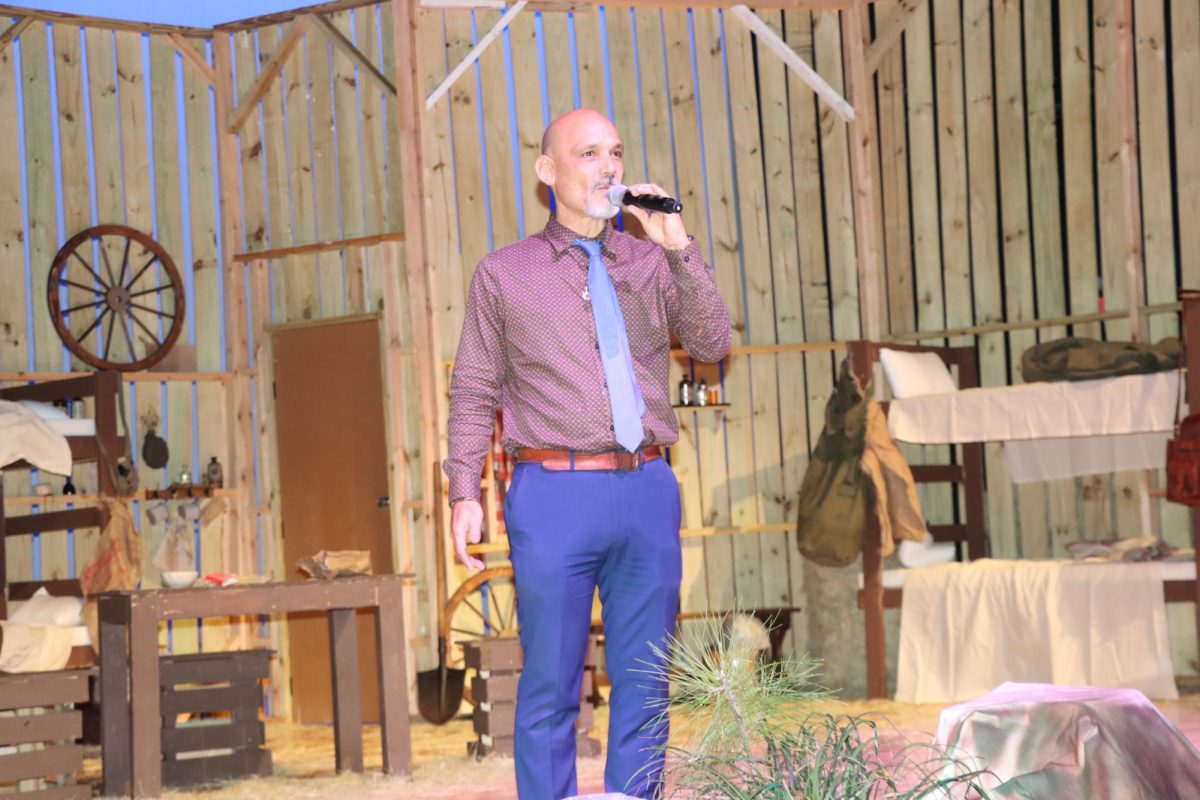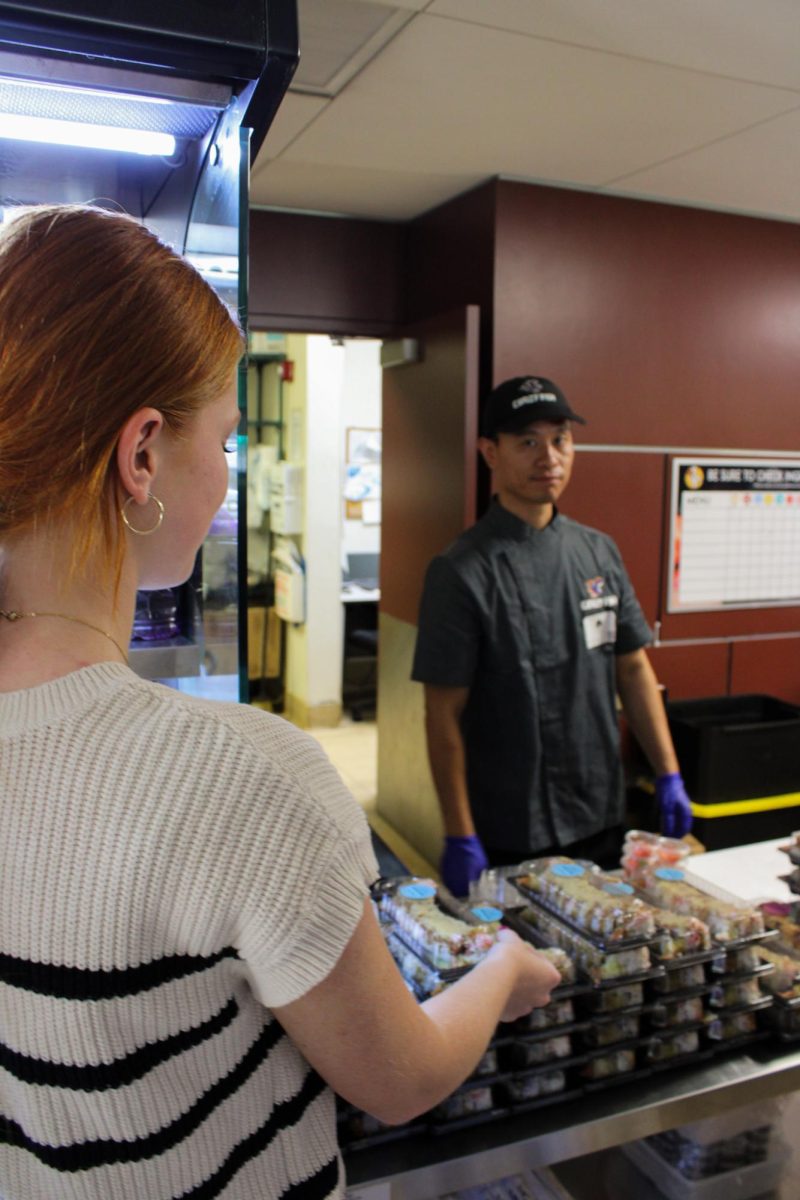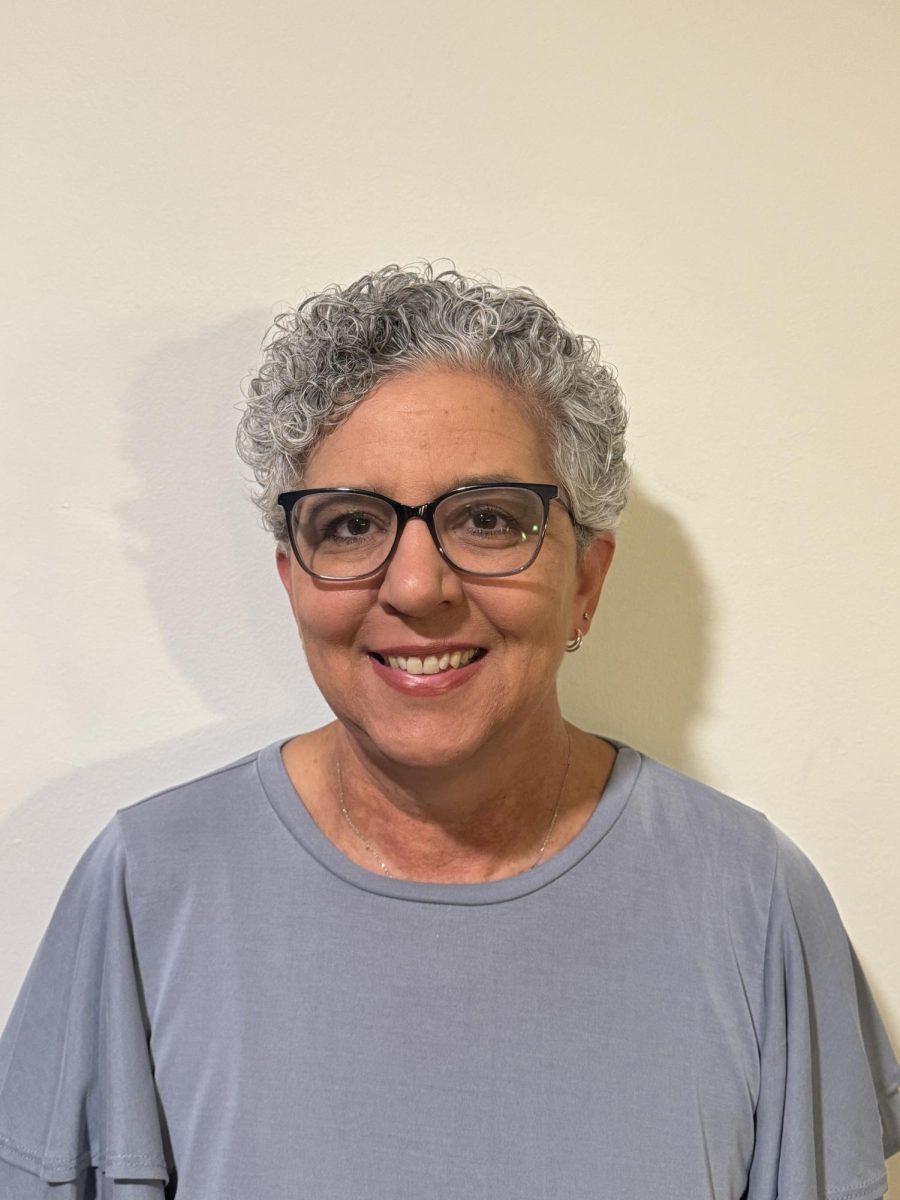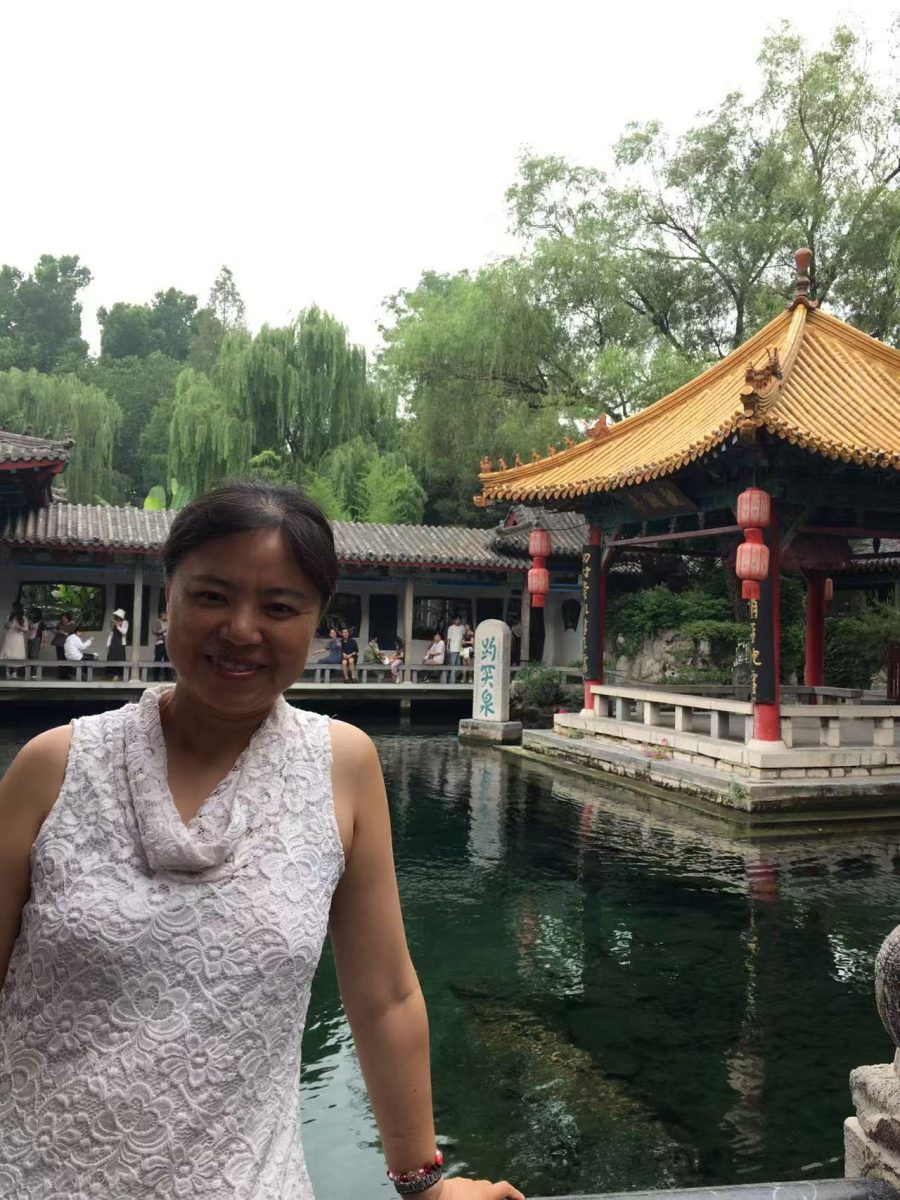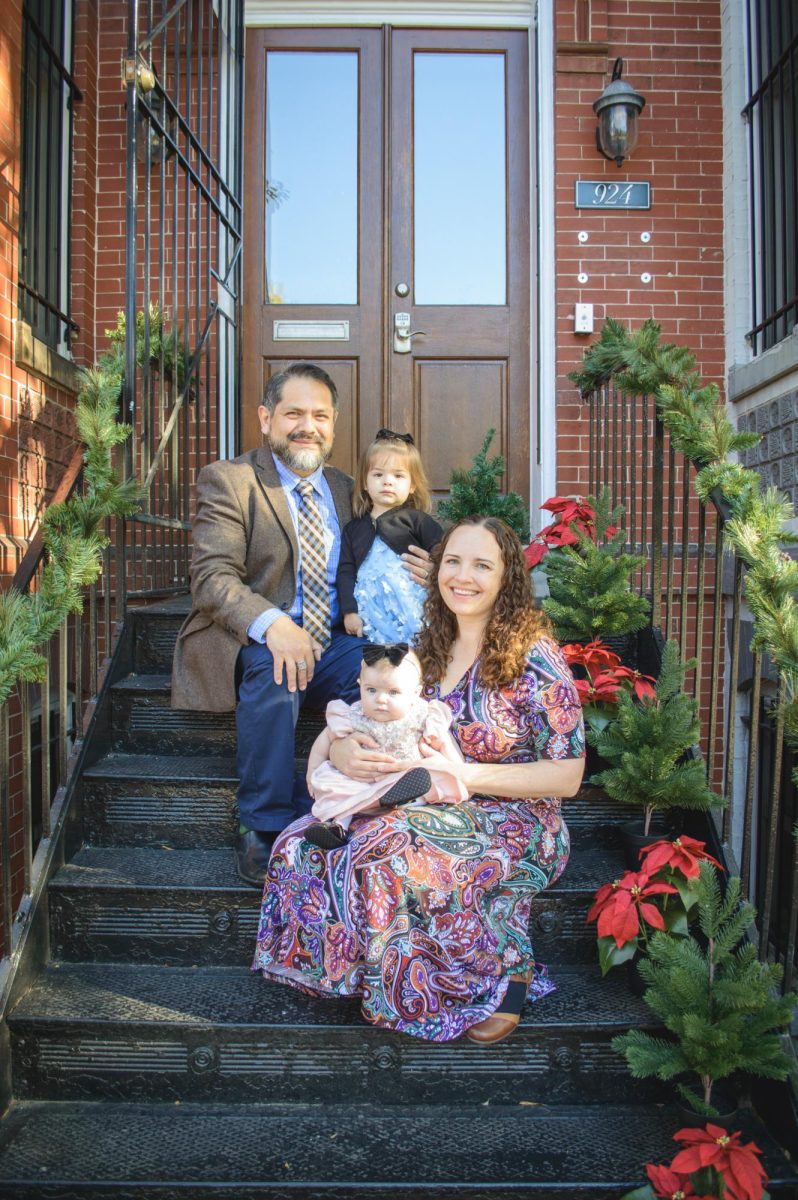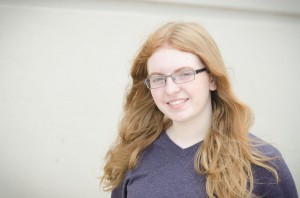At the end of the school year, two department chairs and long-standing faculty members will retire. The school has begun filling the vacancies, appointing two current teachers as the head of their departments and starting the search for new teachers to fill the now-vacant roles.
Stewart bullish on Social Science Department future
After the retirement of Social Science Department Chair Robert Fulmer, the department will be headed by social science teacher Samuel Stewart. His role will consist of overseeing the entire social science program, evaluating teachers, and observing classes. The department head also must manage the curriculum, working with teachers to form a sequence of courses and electives.
Several months ago, the school began to search current faculty for a candidate. After examining the qualifications of several teachers and performing interviews, administrators decided to give Stewart the job.
“I talked about my prior experience, since I have been a department head twice before,” said Stewart. “I also felt like I understood the need for flexibility and how to work with people to find a good balance from seeing the processes at other schools.”
Stewart believes that his opinions on technology will benefit the department as the role of computers in the classroom grows.
“I think I have a more critical view as to whether or not technology is a good idea as a general movement, and I am especially concerned about how it impacts the classroom,” said Stewart. “However, when you look at programs like the online courses offered through the Malone Schools, it is clear that there is significant potential there.”
The main focus for next year will be filling in the gaps left by Fulmer. This includes finding a new teacher who can teach AP Economics and possibly Personal Finance. Other problems to be addressed involve the sequence of social science classes offered in the upper school.
“We are looking to change the fact that if you take AP World History, you must take AP US History to guarantee that you get American history at some point,” said Stewart. “If we do find a way to get around this, we then have the problem of what these students will take as seniors.”
Stewart is also interested in adding more creative courses to the department and adding more recent history.
He believes that although older history needs to be taught as a foundation, he would rather have courses that teach students about the past 150 years in particular.
“We need to understand and know the world we live in now, and how it is different from 50 years ago,” said Stewart.
“As we head into a globalized world, students need to know how to cope with how the economy, politics, and society work before walking into college-level classes. We need to make sure that students know what happened in the world right through the collapse of the Soviet Union, and that it is not crammed into the last two weeks of school. For example, I start my AP Euro classes with the material from 1945 to the present, and then I go back and explain how we got there.”
If it were possible, Stewart said he would change the sequence of classes to include a course with less American history, so that students can begin to develop an idea of the whole world, and an entire year about the 20th century. However, the current sequence of courses still gives teachers the option of organizing material by region, topic, or time, and Stewart thinks that it can work for now.
“The most important thing is that we are not going to rush into changing everything,” said Stewart. “I want to make sure we think everything through before we do it, and in the meantime, we should try to teach the same thing we’ve been teaching.”
Phillips to direct evolution of Science Department
Science Department Chair Dennis Bluge is retiring this year after teaching science at the school for over 40 years.
When an email requesting applications for the position was sent to current science teachers, Phillips decided to apply.
“I have been teaching science for a long time, and I have taught a wide variety of courses,” said Phillips. “I think this has given me a unique view on what you would or would not want to do in a science department and how the different classes work.”
Next year, Phillips will teach AP Biology, which Bluge originally introduced in 1973 as the school’s first AP course, as well as Honors Biology. Another teacher will take over the anatomy course that she currently teaches. Her job as department chair will include managing the budget, scheduling classes, and helping the teachers meet their goals. The AP Biology curriculum has been changed somewhat this year, and AP Chemistry is due for an update next. Additionally, AP Physics B will be replaced by AP Physics 1 and AP Physics 2 to allow for more in-depth understanding of the material by the 2014-2015 school year.
With Phillips moving up to head the Science Department, her position as Professional Development chair will be filled by math teacher Jennifer Baselice. She will be responsible for helping teachers advance their careers through training, workshops, and effective communication with others in their field.
“I am the type of person who is always reading about what’s up and coming in the field of education, and I keep all my ideas on my phone,” said Baselice. “For example, I’d like us to use all the technology available to create a video archive of our sessions, and maybe one day we can make it public to other schools.”



